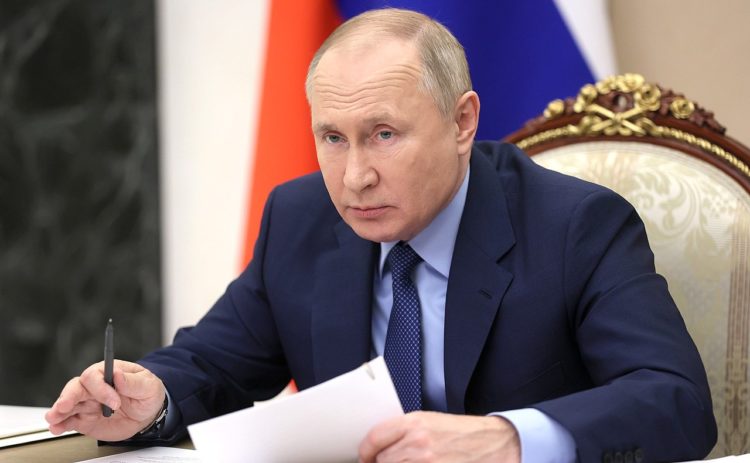Fleming echoes the notion that some of Putin’s senior officials were afraid to break away from his plan to invade Ukraine. He added that these officials were forced to endorse Russia’s recognition of the so-called People’s Republics in Luhansk and Donetsk. This environment led to the Kremlin misjudging Ukraine’s capacity to resist an invasion and predict the possibility of a Western response.
“It all adds up to the strategic miscalculation that western leaders warned Putin it would be. It’s become his personal war, with the cost being paid by innocent people in Ukraine and, increasingly, by ordinary Russians too,” Fleming said.
Similar conclusions were drawn from the insider FSB letter earlier reported by SOFREP, which discussed a letter published by Vladimir Osechkin sent to him by an FSB whistleblower. It can be remembered that the letter cited unpreparedness for a conflict with the Ukrainians and heavy economic sanctions on Moscow.
“Putin thought things were going better than they were. That’s the problem with surrounding yourself with ‘yes men’ or only sitting with them at the end of a very long table,” a senior European diplomat said.
Demoralized Soldiers Sabotaging the Operation, Shoots Down Their Own Planes
Russian conscripts were reportedly under the impression that they were taking part in military exercises but were forced to sign documents that allowed their deployment to Ukraine.
SOFREP also reported earlier that Russians were using conscripts to fight, which would explain the lack of discipline and inexperience among their troops. Many videos have also surfaced online showing conscripts calling home and crying, stating that they were lied to as they did not know they would be sent to Ukraine. More so, Russian troops were seen to be surrendering without a fight and abandoning their perfectly functional military vehicles in Ukraine, many of which were towed away by Ukrainian farmers and their tractors.
“They were misled, badly trained, and then arrived to find old Ukrainian women who looked like their grandmothers yelling at them to go home,” another EU diplomat said.
These demoralized Russian soldiers were reportedly disobeying orders and even accidentally shot down one of their own aircraft. They were also sabotaging their weaponry so that they would not be forced to fight.
“We’ve seen Russian soldiers – short of weapons and morale – refusing to carry out orders, sabotaging their own equipment, and even accidentally shooting down their own aircraft,” Fleming said.
In one of the newer developments, it was also reported that members of the FSB were also kept in the dark on the status of the Russian military in Ukraine. Data on casualties were not given, and agents were forced to make “completely groundless analysis,” according to the Osechkin whistleblower.
If this type of leadership continues, Putin will face issues of more decrease in morale and distrust among all ranks of his intelligence and military agencies brought upon by his paranoia and own megalomania.
A Way Out for Putin
Despite the setbacks of his invasion, Putin does not intend to accept defeat, at least not completely. War has always been Putin’s personal endeavor. Admitting defeat proves a much larger loss to the Russian leader than to the country itself.
Military analysts point to Russia’s revised war goals as an attempt by Putin to save face in a dreadful invasion campaign. Moscow is saying that the liberation of the Donbas region has been the real objective of the “special operation.”
“The main objectives of the first stage of the operation have generally been accomplished,” Head of the Russian General Staff’s Main Operational Directorate Sergei Rudskoi said. “The combat potential of the Armed Forces of Ukraine has been considerably reduced, which … makes it possible to focus our core efforts on achieving the main goal, the liberation of Donbass.”
Analysts doubted Russia’s claims, saying that if Donbas were the true aim of the invasion, Moscow would have launched a smaller, more efficient offensive.
“Obviously, they have completely failed in everything they’ve set out to do, and so now they are redefining what the purpose is so they can declare victory,” Former commander of U.S. Army forces in Europe Ben Hodges said. He now works with the Center for European Policy Analysis.
“Clearly, they do not have the ability to continue sustained large-scale offensive operations… Their logistics problems have been apparent to everybody. They’ve got serious manpower issues, and the resistance has been way beyond anything they could have possibly imagined,” he added.











COMMENTS